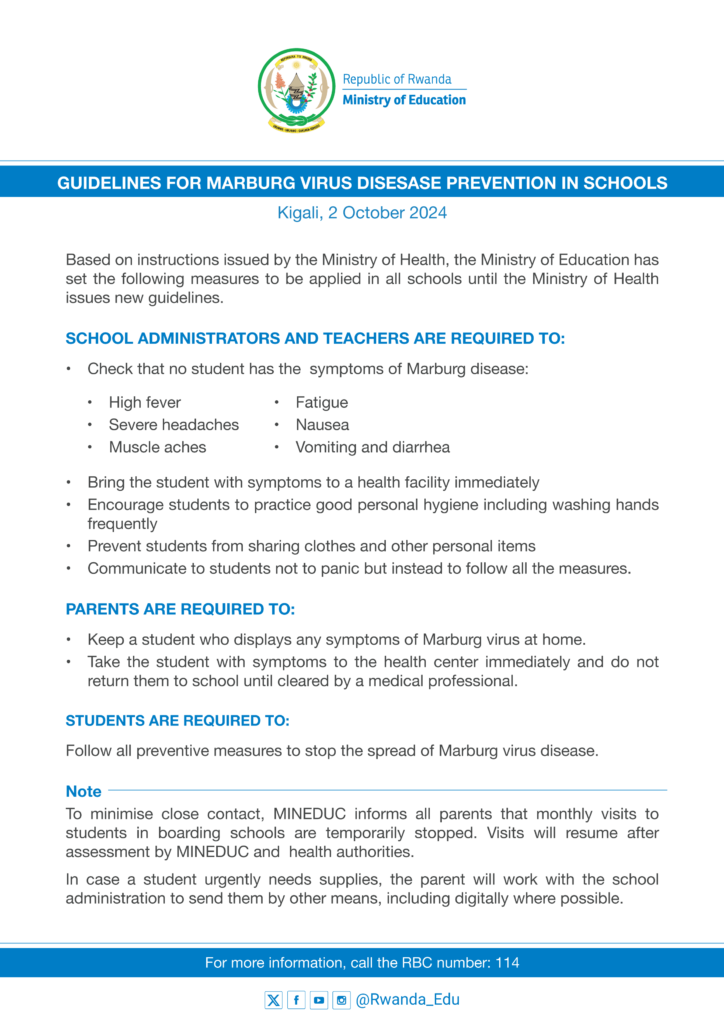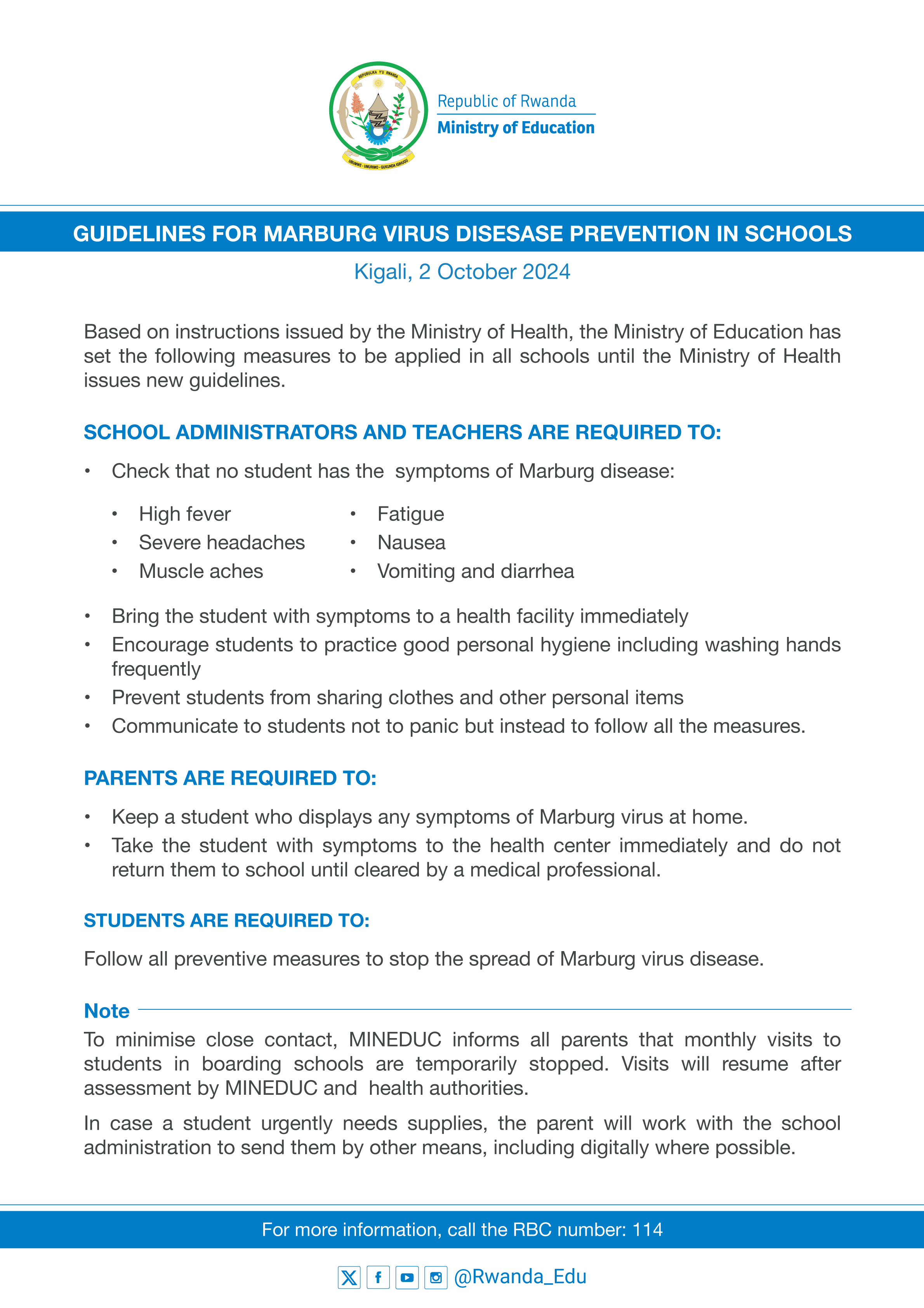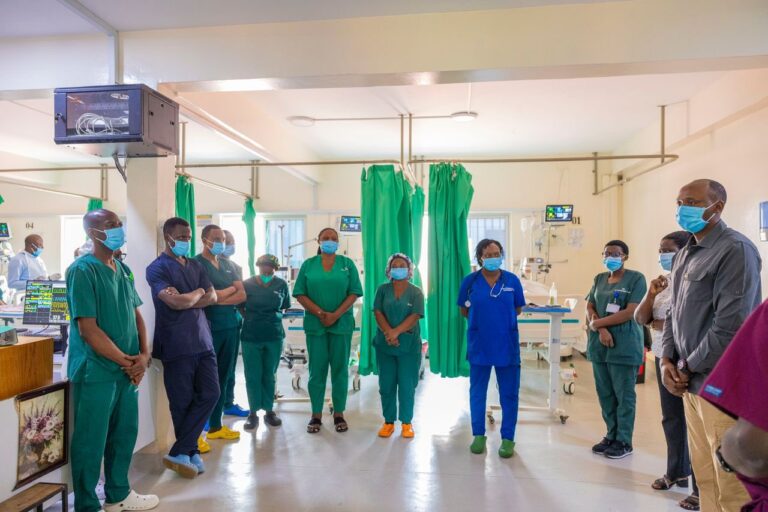Breaking the Chain: Why Cancelling School Visits Can Save Lives During Rwanda Marburg Fever Outbreaks?
Contact limitation is crucial in controlling Marburg fever because it is a highly contagious viral disease, transmitted through direct contact with bodily fluids of infected individuals or contaminated surfaces. Schools, where children are in close proximity and often share materials, can become hotspots for transmission if not managed properly. Cancelling school visits helps break the chain of transmission by reducing the risk of person-to-person spread in public spaces.
Key reasons why school visits are cancelled to prevent transmission
1. Close contact environments: Schools involve frequent physical interactions, making it easy for the virus to spread through saliva, sweat, blood, or even contaminated surfaces.
2. Children’s vulnerability: Children may not fully understand or follow hygiene practices like handwashing and avoiding physical contact, increasing the risk of infection.
3. High-density gatherings: School visits often involve large groups, amplifying the chances of an outbreak if one person is infected.
4. Unidentified carriers: Some individuals may carry the virus before showing symptoms, unknowingly transmitting it to others in a crowded setting.

5. Preventing outbreaks: Limiting contact through the suspension of school visits is a proactive measure to prevent wider community spread.
Parents, educators, and students should stay informed and follow public health guidelines to minimize exposure risks, especially during disease outbreaks like Marburg fever.
Be Safe and Health





